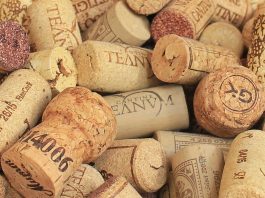Environmental consciousness is continually spreading throughout all areas of human behaviour – individual, cooperative, national, multi-national, and global. Of course, that is more than good news, considering the massive impact of consumerism on the natural climate cycles of planet Earth.
In the collective strive to make way for more environmental products, multiple labels have been defined and used to evaluate the impact of any good produced. Green, eco-friendly, and sustainable products are indeed a trend, but what are they actually?
The truth is that in the perceptions of the average person, these definitions often blend into a hardly coherent whole, meaning an abstract and not well-provable concept. So, today we are talking a bit more about what sustainable products actually are and what makes them different from all the other alternatives on the market.
Table of Contents
Eco-friendly, Green, or Sustainable?
There are a variety of products that help the environment – each in its own way, more or less effective. So what makes a stock sustainable or green? What makes it different from an eco-friendly product?
To make the long story really short, we can define the three groups as follows:
- Green products put a focus on resources. They stand for renewable or recyclable production, along with durability, low maintenance, and energy efficiency.
- Eco-friendly products have a much broader definition, fundamentally embracing the concept of minimal or no harm for the environment and the ecosystems it includes.
- Sustainable products are both green and eco-friendly during their entire life cycle, but they are also something else. In this group, the minimum environmental impact goes with fair trade and ethical socio-economic practices that elevate the label to a brand-new level of consciousness.
So, let us now try to dive deeper into the explanation of sustainability – the game-changer in the way goods are made, used, and reused.
A Sustainable Product: Meaning and Essence
There are four fundamental features that a product should have in order to be labeled as sustainable. These are as follows:

- Responsible resource use
- Ethical manufacturing and supply
- Efficiency throughout the entire life cycle
- Reusability and/or minimum impact upon disposal: upcycling, recycling or composting
As you can clearly observe, a sustainable product has an underlined dual focus: ecological and social. Therefore, these products deal not only with environmental preservation and climate change control but also the pain points of the socio-ecological ecosystem on a global level.
Below, we are about to give a little more detail about each of the missions a sustainable product has: the mission of preserving nature and the mission of improving society.
Ecological Focus
As far as ecology is concerned, sustainable products stick to the strict ISO standards on life cycle assessment, along with multiple other good practices in responsible production.
Throughout the process, every step is arranged to follow expert advice for minimum impact on the ecosystem of the planet. These steps can be summarily classified as follows:
- Resource management during the production, distribution, use, and life cycle of the product;
- Amount of renewable and non-renewable energy consumed during the life cycle of the products;
- Amount of harmful emissions produced during each life stage of the product;
- Amount of waste generated through each life stage of the product;
- Short-term and long-term ecological risks related to the use and disposal of the product.
This is how “eco-friendly” and “green” blend into one whole. And still, that is just a part of what a sustainable product is expected to be at the end of the day.
Social Focus
Business production and supply are as much about people as they are about products. So, sustainable goods put a strong focus not merely on what is created but also on how it is created.
To evaluate the sustainability of a product and put ideas into measurable criteria, several requirements are being reflected, including:
- Ethical production that doesn’t disrupt the local or regional society lifestyle in any way;
- Fairtrade, based on multi-track respect and good business practices;
- Worker treatment and health, guaranteed by fair payments, proper rest, and respect for the person;
- Labor costs and proper laborers’ rights management;
- Intelligent distribution with care for the local societies, nature, and resources.
In addition, many sustainable brands are being intensely engaged with the idea of education, support, and growth inspiration among communities. Net because they are expected to, but because being “sustainable” is an entirely new cultural approach towards making business – a just, honest, caring, and continually engaged one.
Sustainable Products: Examples
All in all, a sustainable product is not merely intended to produce a minimum negative impact. It is, instead, focused on creating a positive impact wherever possible.
Undoubtedly, that sounds great in theory. Unfortunately, that is also part of the reason why the term “sustainable” is often tossed around like a pancake for marketing reasons. So, what are examples of sustainable products actually?
Here are some brief examples for ecologically and socially sustainable products that you can start using right away:
- Organic, locally-grown foods from small family-ran farms that use no pesticides, herbicides, antibiotics, or any other chemicals in the process and rely mainly on their own labor force;
- Recycled fashion, produced in low-risk countries from manufacturers that are certified for following the highest fair trade standards;
- Refurbished tech gadgets, made from local sellers that hand-pick used devices and give them the looks and functionality you need as a customer;
- Multi-purpose and multi-use items with a long life expectancy, such as textile shopping bags, for example.
All in all, a bit of research is always needed in order to avoid the “marketing” kind of sustainable and the genuine kind of sustainable. So, sustainable products can ultimately fulfill their purpose only after buyers learn how to practice sustainable shopping.
Read more: What are examples of sustainable products?
What is Sustainable Shopping and How to Practice It?

The self-evident answer here is rather simplistic: sustainable shopping is, above all, less shopping.
It’s wise to start reshaping your habits as a consumer and try to only buy the stuff you actually need. And when you actually need it, start choosing it under certain criteria.
So, how do you know if a product is sustainable?
- This product is made of recycled materials and can go somewhere else except for the garbage bin after its usage is already limited.
- It didn’t travel the world to arrive at your place. Instead, you walked on foot to buy it or had it delivered from the closest city next to you.
- It will serve you long, and it will serve you easily – without extra maintenance, changing parts, buying additional tools for it, or using harmful substances to keep it running.
- It requires minimum resource use to have it, use it, and keep it functional.
- Should come from a trusted and transparent manufacturer who publicly declares its commitment to sustainable natural and social behaviour.
- The product is labeled and has all the necessary information readily visible – on the package, online, through marketing channels, or all of these at once.
Read more: Why should we buy sustainable products?
In the beginning, finding and choosing sustainable products can feel like rocket science. In time, though, your responsible shopping process will get quite natural and laidback.
Because we keep on learning our entire lives and learning how to show respect towards the planet and other people is among the most important lessons.



